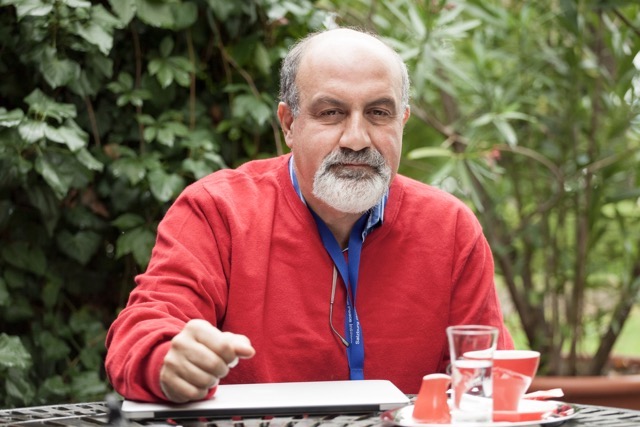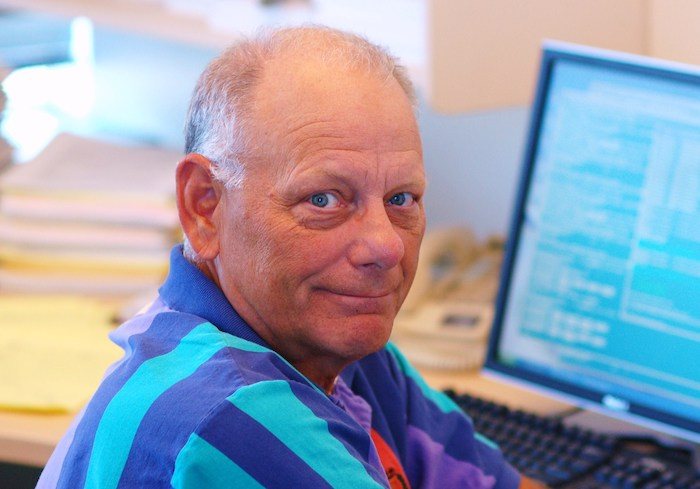This is Adrian from Tactical Project Manager.
I hope you are doing fantastic. And if you are from the US, I hope you had a wonderful Thanksgiving week together with family and friends (and a tasty turkey).
Something I wanted to write about for a long time:
Is it just me, or do you also sometimes feel confused about how to live your life?
Why I’m asking:
We live in the age of social media.
Nowadays, every ant seems to have its own social media account,
from where it can blast its ideas into the ether.
No matter what social platform you use, people want to tell you
- What’s the # secret to becoming successful
- The ONE thing you MUST do to achieve your goals
- How you should think about a particular issue (and why you’re dead wrong if you have a different opinion)
- …
Such posts used to appear only on Facebook.
But now even LinkedIn (the professional network) has become the typical social media platform where people post their weird stuff without much deep thinking.
Because of that, I have to SQUINT MY EYES whenever I log into LinkedIn to see if you have sent me an invite to connect.

How cow!
According to all these people on social media, I’m living my life in a totally wrong way!
Jeez.
How the heck do you deal with all those opinions and recommendations people share on social media?
How do you decide what’s good and what’s bad advice?
For a long time, I didn’t have a good strategy for that.
Then one day, I realized:
I needed principles – a set of basic rules that would help me filter out good from bad advice and make better decisions.
So over the past years, I have been hunting for good principles.
I looked at my past and examined what ‘rules’ had worked well for me.
But most importantly, I gathered principles from people I admire.
People who have achieved major successes in their lives and who made a real impact on the world (they must have found principles that worked well).
Today, I want to share with you my favorite principles that I found very useful and that have guided my thinking and decision-making over the past years.
My 3 favorite quotes from successful people (commented for you)
“There are no shortcuts to any place worth going”
(This quote is from Helen Keller, an American author born in 1880 who grew up blind and deaf; she published 14 books as well as hundreds of speeches and essays and belongs to the Hall of Fame of American authors)

We all love shortcuts – simple tricks and hacks that get us to where we want – ideally overnight and with the least amount of effort.
Shortcuts to making money
Shortcuts to becoming more successful
Shortcuts to landing the dream job
Shortcuts to getting fit
Shortcuts to finding the perfect partner
…
It’s part of human nature to look for shortcuts in whatever we do.
Because this strategy helps us conserve valuable physical energy, which we may need to escape from dangerous predators.
When I started Tactical Project Manager, I was constantly looking for shortcuts — ways to get more traffic to the website, to build products faster, to reach more people in less time …
But then I realized I was actually wasting more time looking for ‘hacks’ than I could ever save with a shortcut approach.
The time I spent searching for shortcuts was valuable time that I could have spent on actual work: building products, writing new articles, engaging with my followers (you), and learning about my audience.
The truth became apparent:
There are no shortcuts to success.
Think of it:
If there was an easy way to accomplish something great, everybody could simply follow that shortcut and get to the desired place with minimum effort.
But if anybody can get to the magic place easily, it’s probably not a place worth going to 🙂
A great destination anybody can get to will look more like that:

You probably agree that this is not a place worth going.
So, just accept that there are no shortcuts and be willing to do the hard work.
I find that insight incredibly liberating and motivating because I no longer beat myself up for not having the “secret recipe” to success.
Success (however you define it for you) is just a matter of doing the hard work.
Are you ready for the next quote?
“Trial and error beats academic knowledge – by far”
I recently heard Nicholas Nassim Taleb (a professor of statistics, best-selling author, as well as a hugely successful investor) make this statement in a Youtube video.

It immediately resonated with me due to my own experience.
Learning a skill from a course is one thing.
Learning a skill through regular practice is a totally different story.
Courses can teach you the theory, whereas practical exercise actually builds your ‘muscle’ (to take a fitness analogy).
You become better in the skill itself.
But why do trial and error beat academic knowledge?
(Why are there so many successful business people, engineers, inventors, or entrepreneurs with few or no formal credentials or academic degrees?)
The answer:
What you learn from trial and error is not just the skill itself.
You learn to train your perception.
Your vision.
You learn to evaluate the quality of your work (which is the basis of personal improvement)
You learn to make distinctions between a ‘bad’ vs. an ‘okay’ vs. a ‘good’ vs. a ‘great’ result.
And no theoretical course can teach you that.
Only regular practice – involving trial and error – will get you towards mastery of a skill.
“Successful people in the world are the people that do the things that the unsuccessful ones won’t. “
Do you know this guy?

I guess not.
But I know for sure that you have been using his product (you may actually be using it RIGHT NOW).
This guy is Dave Cutler, the father of the modern Windows operating system at Microsoft. Dave is a high-energy person who does not shy away from conflict, and who always focuses on the end goal. He is one of my heroes.
Being asked about his accomplishments in an interview, Dave remarks:
“I have this saying that successful people in the world are the people that do the things that the unsuccessful ones won’t. “
He continues:
“I have always been this person that, you know. I will build the system, I will fix the bugs, I will fix other people’s bugs, and I will fix build breaks. It’s all part of getting the job done.”
He will fix *other people’s* bugs (not just his own – would you do that?)
He is always focused on the end result — not on office politics, not on making the best appearance, not on looking “important”, not on pleasing people … he just cared about shipping the best possible product.
Doing the work that other people are too lazy to do …
… Taking up tasks that others are scared of doing
… Showing up every day, and being okay to go the extra mile
Probably not a bad strategy for becoming successful.
For Dave Cutler, the unwavering focus and hard work paid off.
Windows became a huge success story that made Microsoft billions of dollars.
He continued helping to build Microsoft Azure (again, a billion-dollar business)
Dave Cutler now is a legend in software engineering, and he was awarded tons of stock options by Bill Gates, making him a successful multi-millionaire (you can watch the Oral History Interview with Dave Cutler here).
***
That’s all for today!
These were my favorite principles that guide me every day in what I do. If you got some inspiration from them, that’s great!
Before you leave, I’m curious to know:
What is ONE principle that you live by and that you’ve found to be valuable for yourself?
Adrian
Author
-
Hi, I’m Adrian, a Senior Project Manager and the Creator of Tactical Project Manager, where I teach a pragmatic approach to project management. Led large-scale IT and business projects for over 10 years. My goal is to enable you to lead any project with confidence.
View all posts



